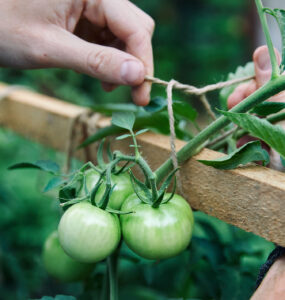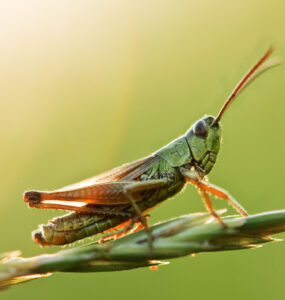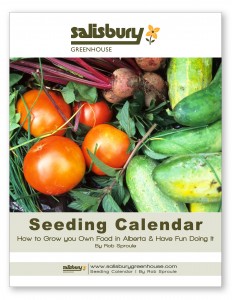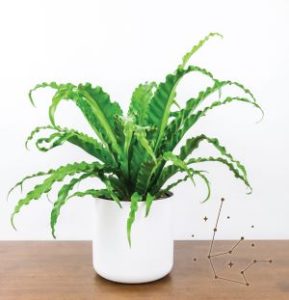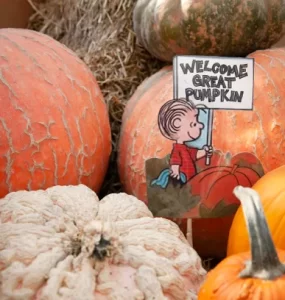Colorado Potato Beetle
By Rob Sproule
The Colorado potato beetle (Leptinotarsa decemlineata), alias potato bug, alias 10-striped speaman, is the most destructive potato crop pest in Canada. After entering Canada via Ontario in 1870, it has become a ravenous and economically destructive pest across the Maritimes, hitting New Brunswick and P.E.I. especially hard. It’s a nuisance across the Prairies, though not as pervasive.
Unlike many garden pests, which originated in the Eastern Hemisphere and invaded across the oceans, Colorado potato beetles came from”¦wait for it”¦Colorado. From there, it has spread almost worldwide and has shown a remarkable ability to become immune to even the harshest insecticides (it even developed a defence against DDT in 1950s).
Identification
You’ll know one when you see one. About 1 cm long, adults sport five bold, brown stripes down the length of their golden back. If they weren’t so destructive, we’d say they were downright beautiful.
The larvae are striking, with a dark red body, black head and jaws big enough to rip your potato leaves to smithereens.
Life Cycle
Potato beetle adults overwinter in the soil around their victimized potato plants. In spring, they emerge to seek host plants, feed for a few days, and lay up to 500 yellow or orange eggs in early July.
Although they can produce multiple generations per year in warmer countries, in Canada, the prohibitive climate typically limits them to one generation; being cold has its advantages.
Damage
These beetles are ravenous and can strip potato fields bare with alarming speed. The larvae can chomp up to 40 cm2 of foliage per day, per critter. Multiply that by each female laying up to 800 eggs, and the math proves terrifying. Adults clock in at 10 cm2 of foliage per day.
Plants without leaves can neither photosynthesize nor produce big spuds. Eventually, weakened plants will simply die from stress.
Control
Make sure to rotate your potato crop every year so that the emerging beetles have a tougher time finding hosts in spring. Laying down an organic mulch, such as straw, can confuse emerging larvae enough to keep them wandering until starvation.
Potato beetles have a host of predators, and some of them have even been harnessed for commercial use. From ground beetles, parasitic wasps and nematodes to a pathogenic fungus, sometimes your garden army will mobilize itself to keep invaders under control. Curbing your chemical use in all areas, and fostering a healthy ecosystem, will go a long way to supporting the predators.
Colorado potato beetles are famous for their ability to withstand and evolve against insecticides, so applying chemicals will do more harm than good. After all, this is an insect that lives exclusively on leaves from the Nightshade family, which is toxic to almost everything else.
A World Player
Not many bugs have been accused of being covert Cold War agents. Potato beetle history reads like a spy novel. In the early 1950s, the Warsaw Pact accused the CIA of air-dropping potato beetles across East Germany to destroy their crops.
After fields that American planes flew over were suddenly afflicted, a propaganda campaign, complete with posters, sprang up. Children across East Germany were sent out after school to collect and destroy the beetles, which were labelled amikafer, or “Yankee beetle.” The allegation was never proven one way or the other.
In the 2014 Ukrainian conflict, pro-Russian rebels sported colours of St. George to show their allegiance to Moscow. The black and gold armbands have earned them the derogatory nickname kolorady, meaning “Colorado beetle” in both Ukrainian and Russian.



